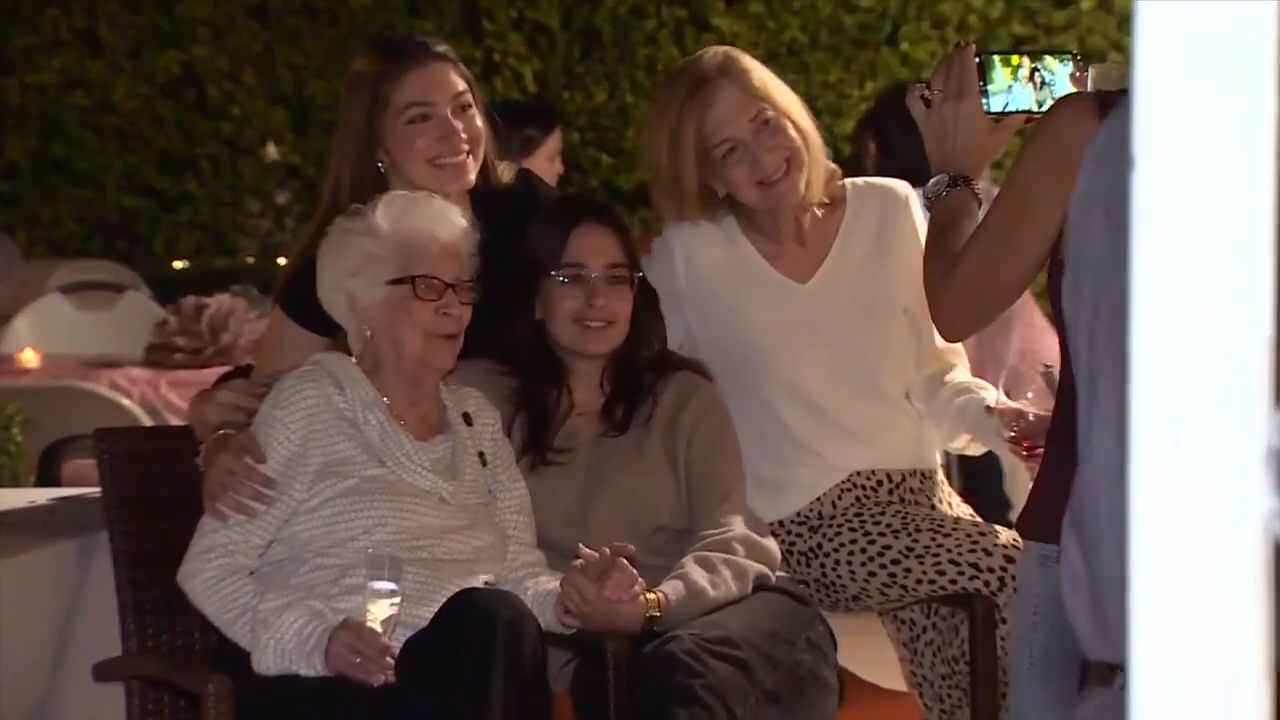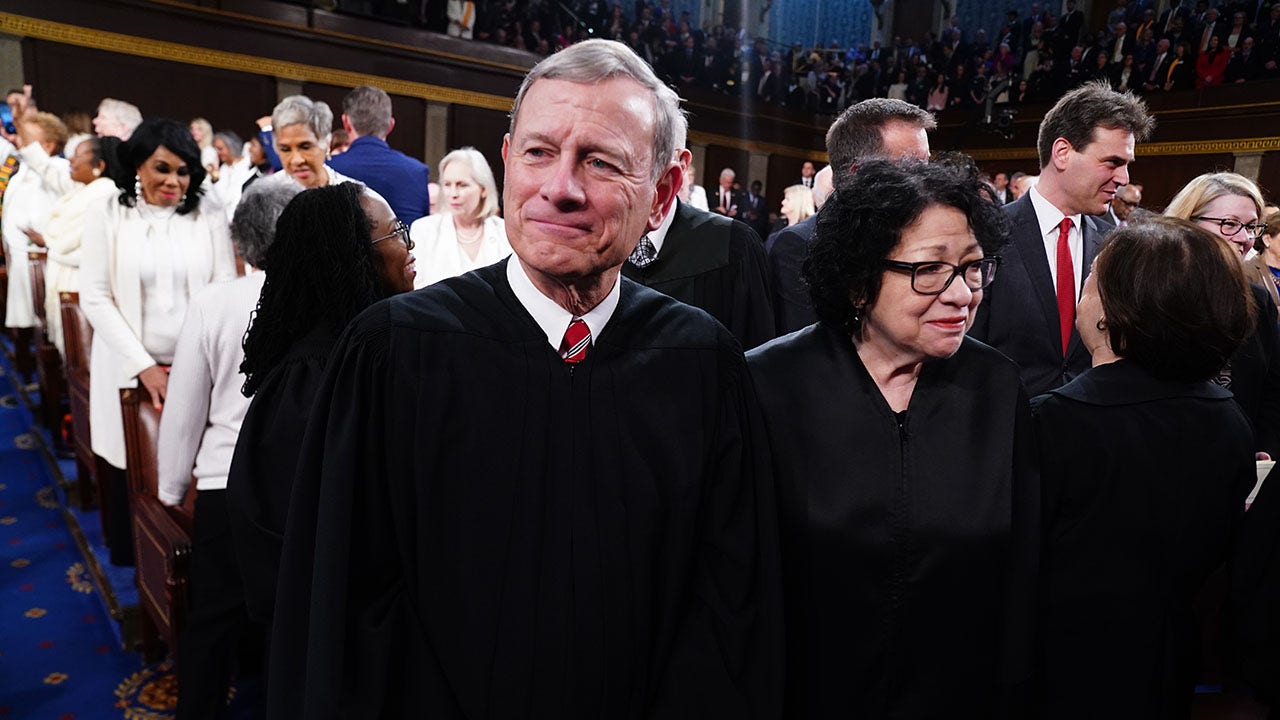Movie Reviews
Bill Burr’s Cranky ‘Old Dads’ Forgets to Be Funny in War on ‘Wokeness’
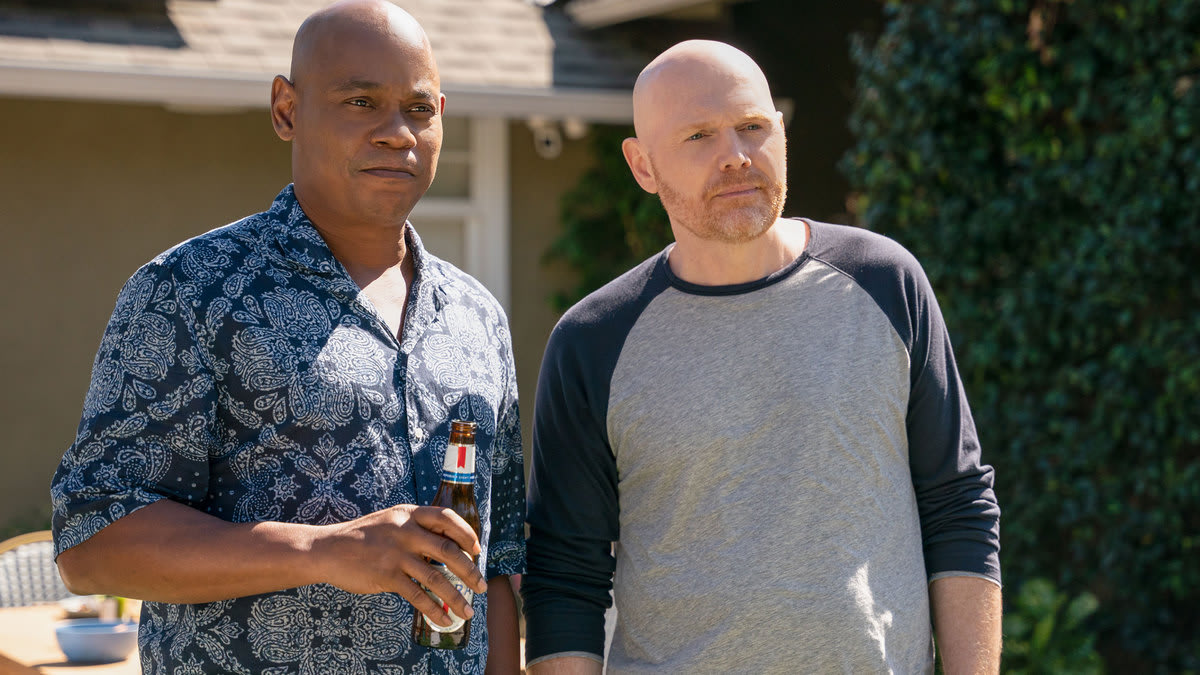
Comedian Bill Burr acutely understands the power of a good rant—how anger has its own unique rhythm and flow. From his first HBO half hour in 2005 through his seven Netflix specials, Burr has built a career out of blowing his stack on stage, righteously and irrationally. Only recently has he found success applying that persona to fictional characters, in films like The King of Staten Island and his semi-autobiographical Netflix animated series F Is for Family. Now Burr returns with his directorial debut: Netflix’s Old Dads (Oct. 20), in which he casts himself as a man whose anger at the modern world threatens his family life.
Jack, Burr’s stand-in, loves being a father to his young son, but he constantly finds himself at odds with the people in his life, like thin-skinned parents or Dr. L (Rachael Harris), the obnoxious principal of his kid’s ultra-progressive private school. His attitude reaches critical mass when he calls Dr. L a “stumpy cunt” at the same time that his sports jersey company is made over by his new “woke” millennial CEO (Miles Robbins), who turns it into a “gender-neutral, carbon-neutral, 21st century lifestyle apparel brand.” In order to help provide for his son, Jack must learn to curb his anger and, alongside friends and company co-founders Connor (Bobby Cannavale) and Mike (Bokeem Woodbine), adjust to the changing times, lest he drive his pregnant wife (Katie Aselton) and child away for good.
Michael Moriatis / Netflix
Old Dads essentially adapts Burr’s stand-up into a narrative feature by addressing the underlying aggression of his persona. But rhetoric and drama are different beasts, and while Burr can construct strawmen and women on stage to knock down in an entertaining way, they become caricatures when embodied by actors on screen. Jack’s enemies in the film are such broad exaggerations of progressivism that the fictionalized Burr always has the moral high ground. Although Jack hurls a misogynistic slur at Dr. L, no one from any generation would support what provoked the outburst: the condescending glee in which she humiliated Jack for being two minutes late to pick up his child. (Later, she makes him apologize to the whole school in what resembles a show trial.) Jack, Connor, and Mike are fired by their boss for cracking wise about Caitlyn Jenner, but only because their conversation was surreptitiously recorded by a secret camera in a rental car, basically positioning potentially offensive speech against an invasion of privacy.
Every time Jack’s rage or lack of filter gets him into trouble, Burr emphasizes the situation’s inherent unfairness. It’s difficult to take seriously the message of maintaining one’s cool and evolving with the culture when Burr and co-writer Ben Tishler reiterate Jack’s unflinching honesty against a coterie of, for a lack of a better term, woke scolds. (Burr handled the concept of a toxic patriarch and changing cultural tides much better on the 1970s-set F Is for Family, which at least benefited from historical distance.) Jack’s wife points out his shortcomings, and Burr pays lip service to the idea that the worst thing an aging Gen X-er can become is a get-off-my-lawn type. The film even makes intermittent efforts to humanize its targets, albeit mostly through their own holier-than-thou ideological purity blowing up in their face. But the underlying idea is still that Jack is almost always right and everyone basically needs to relax or mind their own business.
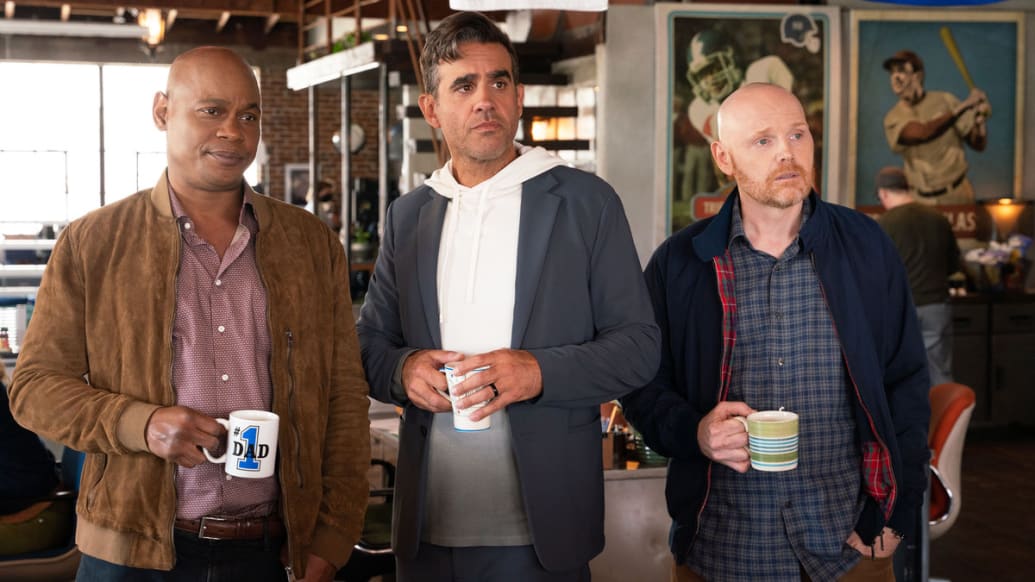
Michael Moriatis / Netflix
It would be easier to swallow this argument if Old Dads were consistently funnier. But laughs are few and far between; save for an early scene of Jack losing his patience on the road and a later one of a silent auction gone horribly wrong, the film mostly goes through the motions, mired in its own flawed sense of virtuousness. Burr tries to use his ensemble to explore other perspectives besides his own, but every other character is too thinly sketched to make much of an impact. What remains is Jack’s last-honest-man schtick, and if Burr is willing to grant that it should be tempered through therapy for the sake of his children, he makes sure we know that it’s still justified. Because, as Old Dads argues, millennials areoversensitive hypocrites who can’t wait to police your language or cancel you, but okay, you probably shouldn’t scream at them in public. How hilarious.

Movie Reviews
Movie Review: Hollywood Veteran Nicole Kidman Returns to Erotic Drama in 'Babygirl'

After watching Christy Hall’s Daddio earlier this year and Halina Reijn’s Babygirl out this month, it’s clear that Hollywood has moved on from #metoo to conventional passion and eroticism in filmmaking.
After all the controversy over sexism, sexuality and power imbalances, one would assume female writers and directors would fully embrace the female gaze and make use of the collective step forward in our cultural narrative.
But both Daddio and now Babygirl make me feel like the opposite is happening — that women behind the camera are enabling the male gaze instead. And its not even in a satirical way either, but more of a resigned acceptance, strangely enough.
Twenty-five years following Stanley Kubrick’s Eyes Wide Shut (1999), Nicole Kidman returns to erotic drama with Babygirl as protagonist Romy Mathis, the CEO of a major tech-based corporation in contemporary New York City. At work and at home, she’s a successful and dedicated businesswoman, wife and mother.
But in private, she wishes that she could fulfill her sexual desires. When one of the new interns, confident and attractive Samuel (Harris Dickinson), shows an interest in Romy, she thinks he might be able to understand her needs in bed in ways her husband, playwright Jacob (Antonio Banderas), doesn’t.
Esther-Rose McGregor and Vaughan Reilly play Romy’s young daughters, and Sophie Wilde co-stars as her dedicated colleague.
In the promotion fo Babygirl, I was surprised Reijn didn’t name Jane Campion or Sofia Coppola as directors who have influenced her work, and mostly listed the more infamous male filmmakers of the 1980s erotic thrillers, like Paul Verhoeven, Brian De Palma and Adrian Lyne. But after watching Babygirl, it makes sense. There is virtually no message or theme to the film other than “giving into your immoral temptations might lead to consequences.”
None of the characters are interesting or likeable enough to follow for two hours, let alone deserve being redeemed by the end. Decisions by the characters are overly convenient to move the plot along, and the lack of male nudity compared to the graphic female nudity is distracting, especially from a film being marketed as erotica “for women.”
It feels like Reijn just enjoys shooting provocative sequences and not much else. It isn’t even that sexy or shocking. It left me wondering, “What’s the point? Some people can’t help being horny?” You could just go back and watch Campion’s The Piano (1993), Verhoeven’s Basic Instinct (1992) or Lawrence Kasdan’s Body Heat (1981) again if you want effective, well-executed eroticism in cinema.
Most disappointing to me are the two leads of Babygirl, both generally talented and mesmerizing, who have been better in other films. I felt Banderas was also wasted and underwritten as the perplexed, devoted husband.
Babygirl has an interesting plot and good cast, but it’s eroticism ultimately leads nowhere.
Movie Reviews
Screen Grabs: Zut alors! The Count of Monte Cristo rides again – 48 hills
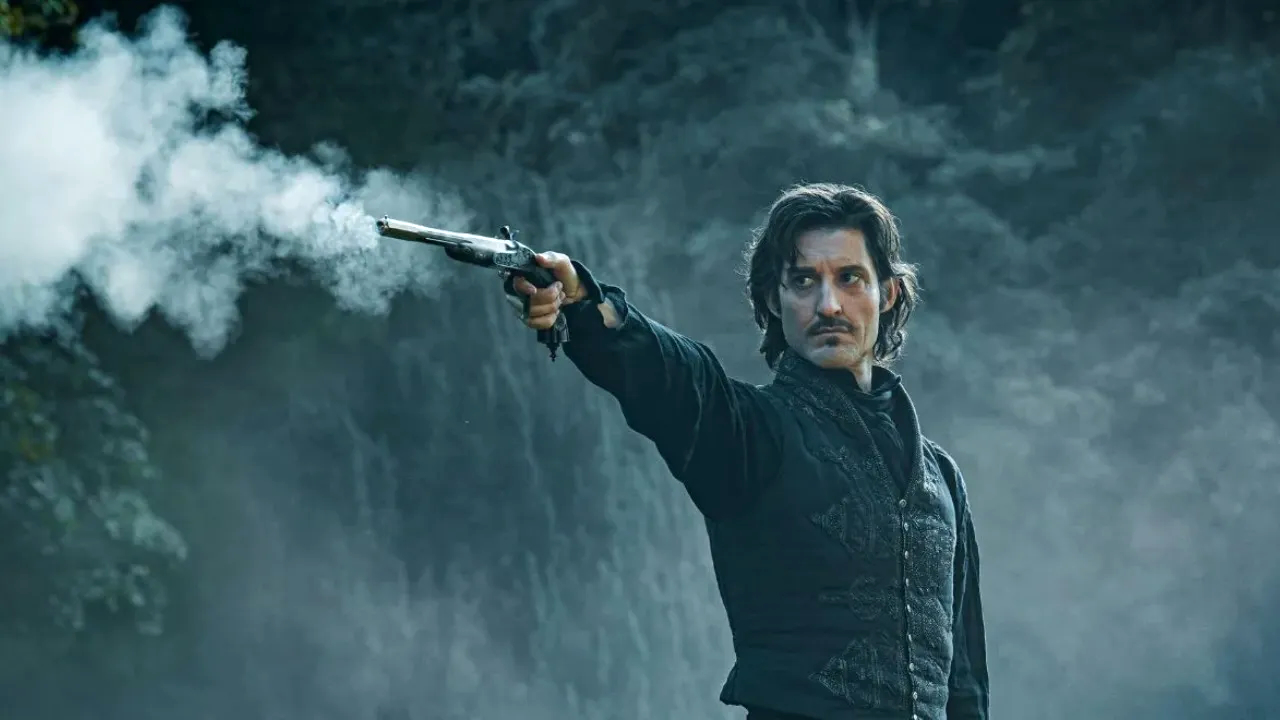
Historical fiction is what’s happening at the movies this week, with a side serving of current events in two more features. The big, plush beach-read epic among them is The Count of Monte Cristo, Alexandre Dumas’ adventure classic being given an extravagant new three-hour visualization by the French writing-directing team of Matthieu Delaporte and Alexandre de La Patelliere. Pierre Niney of Frantz and Yves Saint Laurent plays Edmond Dantes, a sailor of humble origin made good, until a jealous rival has him framed as an agent of the exiled Napoleon. Years later, he escapes an island prison and poses as a wealthy foreigner to insinuate himself into the worlds of the three men (Bastien Bouillon, Laurent Lafitte, Patrick Mille) who’d orchestrated his fate—and have profited from more crimes since.
Even with its narrative somewhat altered and compacted from Dumas’ sprawling original (which was first published as a serial between 1844-46), this remains a flamboyantly old-fashioned tale of credulity-stretching intrigue and coincidence. We seldom see its like on the big screen anymore—or maybe we do, but these days it’s more likely to take the overtly fantastical form of a Batman movie or the like. This lavish production does not shy from going over-the-top in its ostentatious settings, flashy drone shots or bombastic orchestral score. Still, it all pretty much works, particularly once the elaborate revenge scheme kicks in around mid-point.
It’s period popcorn entertainment on a grand scale, no less enjoyable for being more than a bit theatrically shameless. The Count of Monte Cristo begins opening around the Bay Area on January 3; likely SF venues (not yet confirmed at presstime) were the AMC Kabuki and Metreon.
As strikingly bleak in its handsome B&W austerity as The Count is eye-candy colorful, The Girl With the Needle from Danish director Magnus von Horn (whose prior Sweat we reviewed here) weaves fictional elements around a shocking criminal case from a century ago. In 1919 Copenhagen, Karoline (Vic Carmen Sonne) is a clothing-factory seamstress whose husband hasn’t come back from WWI service, and may well be dead. She is seduced by her wealthy boss (Jorgen Fjelstrup), but any dreams of a wealthy, stable future with him get squelched by a first/last meeting with his imperious mother.
Now pregnant and desperate, with legal abortion not an option, Karoline finds herself aided by a stranger met by chance. Middle-aged Dagmar (Trine Dyrholm) seems to be in the business of helping just such poor young women, and placing their unwanted children in “good homes.” But it is not until she’s become an integral part of Dagmar’s ongoing operation that Karoline realizes her benefactress is secretly a monster—a sort of matricidal equivalent to Sweeney Todd. It is that figure who’s based on a real-life one, her trial leading to major changes in child-protective laws; and the formidable Dyrholm is impressive as always in the role.
But primary focus here is on fictive Karoline, who is not very interesting or even terribly sympathetic. The facts on record are so much more powerful than what von Horn chooses to portray, his choices end up seeming rather inscrutable, despite the film’s compelling atmosphere and aesthetics. It’s an arresting exercise in many respects that nonetheless proves somewhat frustrating. Girl opens Fri/3 at SF’s Roxie, with other Bay Area venues to follow.
Taking place a few years earlier on the far opposite ends of Eurasia is Harbin from South Korean writer-director Woo Min-ho, of prior hit political thrillers Inside Men and The Man Standing Next. It’s set in 1909, four years after a multinational treaty forced Korea to basically become a colony of Japan following the latter’s winning the Russo-Japanese War. Abandoned by allies (including the US), nationalists formed resistance groups to combat the encroachment of further Japanese imperialism, among them the Korean Independence Army. Ahn (Hyun Bin) is fighting in their ranks when they score a combat victory over some surprised Nippon troops. But he insists on honoring international war-crimes rules by not executing some captured personnel, despite his own men’s objections. That turns out to be a bitterly regretted decision, because spared high-ranking officer Mori (Park Hoon) soon seizes an opportunity to massacre nearly all Ahn’s comrades.
To redeem himself, Ahn decides he’ll make it his mission to assassinate Japan’s Prime Minister as he travels across China to meet with Russian diplomats, orchestrating deals that will secure Korea’s subjugation. This involves a labyrinth of undercover intrigue, arms acquisition, betrayal, shootouts, and so forth, with a mole conveying most of these planned guerrilla actions to the relentless Mori before they can occur.
Dense with background details and explication that may be somewhat daunting to non-Korean audiences, Harbin nonetheless maintains interest with a somber, tense mood spiked by occasional outbursts of violence. It’s handsomely produced on impressive locations, from spectacular mountain and desert landscapes to myriad interiors whose dark look amplifies the surreptitious nature of the characters’ activities. A history lesson framed as heroic action-suspense tale, Harbin may for Western viewers recall starry big-budget WW2 espionage epics of the 1960s like Where Eagles Dare and Von Ryan’s Express—though it’s a bit less heavy on the swaggering machismo. It opens in Bay Area theaters Fri/3.
Another fact-inspired new drama has gotten a divisive response, with raves and awards from some quarters, while others have found it curiously alienating. I’m sorry to say I landed on the debit side of that divide—sorrier still because the source material seemed such a natural for the screen. Colson Whitehead’s Pulitzer-winning 2019 novel The Nickel Boys provided a succinctly powerful portrait of slavery long after the official end of slavery, via abuses visited on boys at a very long-running fictive Florida boys’ reform school (in real life the now-shuttered Dozier School). Its protagonist gets sent there unjustly as a juvenile in the early 1960s, and is lucky to survive the experience. Much later, he lives to see the institution investigated, uncovering decades of brutality including rape, beatings, and the unmarked graves of former wards who supposedly “ran away” or simply “disappeared.”
Nickel Boys (the “the” has been dropped) is a first narrative feature for RaMell Ross, who previously had turned his sojourn teaching photography in rural Alabama into a fine poetical documentary of life there. Hale County This Morning, This Evening was oblique but evocative, offering little in the way of concrete storytelling yet providing heady, lyrical insight into a place and culture.
But Whitehead’s book is full of vivid incident, character dynamics, and historical context; it’s not the sort of thing that lends itself to flavorful abstraction. Whatever led Ross to make the decisions he makes, they didn’t work for me: He has shot this intensely dramatic story entirely in the first-person, initially limited to the perspective of teenaged Elmwood (Ethan Herisse), then also that of Turner (Brandon Wilson), who becomes his only real friend at the dreaded “Nickel Academy.”
Their travails rendered murky by a POV in which we see the abuser, but not the abused (Ross and Joslyn Barnes’ screenplay tends to leave those acts to our imagination anyway), this is a movie whose high-minded experimentalism ends up only muffling the impact of its material. The effect is rather like reading a novel entirely written in the second person: It’s a gimmick that can be pulled off, yes, but why would you want to? The performers (also including Daveed Diggs, Hamish Linklater, and Jimmie Fails) are good, albeit handicapped by the alienating technique. Some, like Aunjanue Ellis-Taylor as Elwood’s grandmother, succumb to overstatement when repeatedly asked to play entire scenes directly to the camera, rather than a fellow actor.
The external threads Ross weaves in (often utilizing archival footage) involving the concurrent Civil Rights movement, “space race” etc. do ultimately pay off in making this long sit achieve a kind of complex, essayistic dimensionality. But those 15 minutes or so of Chris Marker-like montage succeed at the cost of The Nickel Boys, which will have to wait for a more straightforward future translation to realize the impact that fairly leapt off Whitehead’s pages, and which should have provided no obstacle to replication in this medium. It opens in Bay Area theaters Fri/3.
More direct depictions of grave present-tense injustices are on display in two more new films. Brendan Bellomo and Slava Leontyev’s Porcelain War centers on three Ukrainian artists living in the vicinity of devastated Kharkiv, very near the Russian border. Originally they’d all lived in Crimea, yet another “life stolen from us by Russia’s occupation.” Finding themselves in a new war zone, they maintain their disciplines as a form of protest: Cinematographer Andrey Stefanov keeps filming, including the mines and IUD’s now littering their countryside, while married couple Leontyev and Anya Stasenko continue creating ceramic miniatures that now offer commentary on this nation’s appalling day-to-day reality.
Occasionally bringing those whimsical figures to “life” via animation, Porcelain Nation can seem a bit twee, particularly when compared to the many more bluntly powerful documentaries about Ukraine the last couple years. But in its second half, the film acquires some power of its own, as we watch Slava train as a weapons expert for the Ukrainian Special Forces, and Andrey must cope with sending his children into exile for their own safety. There’s even gritty you-are-there footage of combat missions. Ultimately, the film’s strength lies in showing how art can retain its relevance, and artists their artistry, under the most antagonistic circumstances.
Likewise, From Ground Zero: Stories From Gaza is not the most hard-hitting of recent features about Palestinians’ plight, but it benefits from a diversity of approach to a grim subject. Conceived by Rashid Masharawi, the project brings together 22 filmmakers for as many individual contributions to a nearly two-hour omnibus reflecting everyday life in Gaza. As amply demonstrated here, that life is to a large degree now spent in refugee camps, or combing through the debris of homes newly bombed to rubble—sometimes still hoping to find survivors buried beneath.
There are sequences that are straight documentary reportage, others more in the realm of personal essay, plus a fair number of dramatized vignettes. In lighter moments, we see a standup comedian provide some escapist relief for refugees; animation and marionettes are utilized elsewhere.
Not everything here is good, with a wince-worthy moment or two, as during a bit that’s like a tacky amateur music video on YouTube. But the immediacy of so many voices in front of and behind the cameras does generate considerable insight. It would take a heart of stone not to be moved when at one point various children are interviewed, and one notes that her baby brother hasn’t yet acquired the power of speech—his experience to date has only taught him to imitate the sound of an ambulance siren.
Porcelain War and From Ground Zero both open Fri/3 at SF’s Roxie Theater, the former also at the Rafael Film Center in Marin.
Movie Reviews
A look back at movie reviews of 2024

Throughout the year, I took a look at quite a few new releases that were shown at the Dietrich Theater. Some of these new releases also consist of a few films that were shown during the seasonal film festivals. And, some of the new releases that I checked out were really good.
In fact, my top films of the year list is slightly bigger than usual. So, let’s get things started and here’s my top picks of 2024.
20. Remembering Gene Wilder
19. Civil War
18. Arthur the King
17. Anyone But You
16. The Holdovers
15. Inside Out 2
14. Ordinary Angels
13. Transformers One
12. The Wild Robot
11. It Ends With Us
10. Alien: Romulus
9. Twisters
8. Furiosa: A Mad Max Saga
7. Kingdom of the Planet of the Apes
6. Sonic the Hedgehog 3
5. Smile 2
4. The First Omen
3. Deadpool & Wolverine
2. The Wild Robot
And my number one pick of the year is … (definitely not Madame Web!) … Wicked.
As usual, there are some honorable mentions that were kind of close to making it to the top list! Migration; Godzilla x Kong: The New Empire; The Beekeeper; Moana 2; Kung Fu Panda 4; Abigail; IF; A Quiet Place: Day One; Gladiator II; The Bikeriders; Speak No Evil; Beetlejuice Beetlejuice; Horizon: An American Saga – Chapter 1; Reagan; Bad Boys: Ride or Die; My Penguin Friend; Saturday Night
For the first time, I will reveal a few selections that didn’t come close to making it to either the top list or the honorable mentions: Joker: Folie A Deux; Argylle; Lisa Frankenstein; The Watchers; Trap; The Crow
I plan on working on quite a few fun reviews through 2025! Besides the new releases and the film festival selections I generally work on, I will also be planning on some throwback reviews. Make sure to keep on checking my Wyoming County Examiner reviews page on Facebook for future reviews that I will be working on.
-
/cdn.vox-cdn.com/uploads/chorus_asset/file/25672934/Metaphor_Key_Art_Horizontal.png)
/cdn.vox-cdn.com/uploads/chorus_asset/file/25672934/Metaphor_Key_Art_Horizontal.png) Technology1 week ago
Technology1 week agoThere’s a reason Metaphor: ReFantanzio’s battle music sounds as cool as it does
-

 News1 week ago
News1 week agoFrance’s new premier selects Eric Lombard as finance minister
-

 Business1 week ago
Business1 week agoOn a quest for global domination, Chinese EV makers are upending Thailand's auto industry
-

 Health4 days ago
Health4 days agoNew Year life lessons from country star: 'Never forget where you came from'
-
/cdn.vox-cdn.com/uploads/chorus_asset/file/24982514/Quest_3_dock.jpg)
/cdn.vox-cdn.com/uploads/chorus_asset/file/24982514/Quest_3_dock.jpg) Technology4 days ago
Technology4 days agoMeta’s ‘software update issue’ has been breaking Quest headsets for weeks
-

 World1 week ago
World1 week agoPassenger plane crashes in Kazakhstan: Emergencies ministry
-

 Politics1 week ago
Politics1 week agoIt's official: Biden signs new law, designates bald eagle as 'national bird'
-

 Politics6 days ago
Politics6 days ago'Politics is bad for business.' Why Disney's Bob Iger is trying to avoid hot buttons








